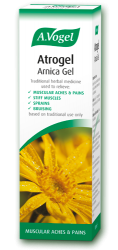Kick it up a notch!
Our Herbamare combines herbs and vegetables with a little sea salt to create a delicious, healthy seasoning for any dish!
One factor that influences worsening symptoms at night is that you notice them more. Especially if the symptoms are keeping you from having a good night's sleep. Anything that keeps me awake gets my full attention, and not in a positive way!
Without the distractions of daytime busy-ness, pelvic pain can absorb your attention completely. Especially if it's stopping you from relaxing into sweet slumber. For this reason I suggest focusing your mind with a guided meditation as soon as you get into bed. Draw your attention to breathing and relaxing, and divert attention away from pain.
The position you sleep in could increase pressure on your pelvic area and make pain more intense. Try a position that helps to relax the pelvic muscles. Try lying on your side and pulling your legs up into a foetal position. Or try spreading your legs apart if you sleep on your back.
Consider your nightwear. Ditch tight and constricting items. They will increase pain and worsen other symptoms too. Instead wear loose, non-restrictive pyjamas made from a soft, natural and breathable fabric. Cotton nighties are a great option.
Heat is a wonderful pain reliever and a simple solution to pelvic pain. A hot water bottle or heat pad on the pelvis helps release tense muscles that have contracted.
Try some gentle stretching before bed to release tense muscles around the pelvis. The less contracted these muscles are the less pain you will experience.

Atrogel is super helpful for relieving and relaxing sore, constricted muscles.
Apply 2 to 10 cm of the gel gently to the affected area. Use between 2 and 4 times daily for pain relief.
"Very impressed with the arnica gel"

It might seem like you are peeing more often at night too, something that can go un-noticed during the day. Waking every few hours to pee interrupts your sleep and leaves you groggy the next morning. What can be done about this?
Treating cystitis requires drinking lots of water throughout the day. This is essential to flush out the infection, but minimise liquid intake 2-3 hours before bed. This ensures your pee trips don't interrupt your sleep. However, our menopause expert, Eileen recommends having a shot gloss of warm water as you go to bed to reduce night time loo trips. This simple tip seems to work a treat for most women and we have plenty of positive feedback to prove it.
Make sure you completely empty your bladder before you get cosy under the duvets too. Try double voiding before bed, this means you pee once, wait a few minutes and then pee again.
If urinating at night is causing a broken sleep pattern, take Dormeasan Sleep drops as soon as you wake at night. Dormeasan Sleep helps you drift back into deep sleep swiftly. This will lessen feelings of grogginess the next morning.
Many women experience worse stinging sensations when they pee at night or in the early morning. This is because urine output is at its lowest at these times. By the middle of the night, you have spent hours without drinking fluids so the urine in your bladder is very concentrated. The more concentrated your urine, the more irritating it is to your bladder.
Drinking as much plain, still water as you can throughout the day is a solution to this, as it will help keep the urine less concentrated and will help flush out infection too. Avoid drinks and foods that irritate the bladder lining, to minimise stinging and burning sensations. Foods and drinks such as tea, coffee, other caffeinated drinks including fizzy drinks, alcohol, processed meat, and spicy food. Simple carbs including sources of refined sugar, sugary foods and foods containing white flour, such as white bread or white rice.
Sex can worsen symptoms of cystitis, so even if it is your normal night time routine, avoid it until your infection has completely cleared. Otherwise you are likely to hamper a good night's sleep.
Our Herbamare combines herbs and vegetables with a little sea salt to create a delicious, healthy seasoning for any dish!
Join Hetty and Martin in the A.Vogel gardens to improve your flexibility.
Carbohydrates have a bad reputation, but eating the right kinds can actually be great for weight management!
Alfred Vogel's guide to leading a healthy and happy life
Get new recipes in your inbox every week. Sign up now